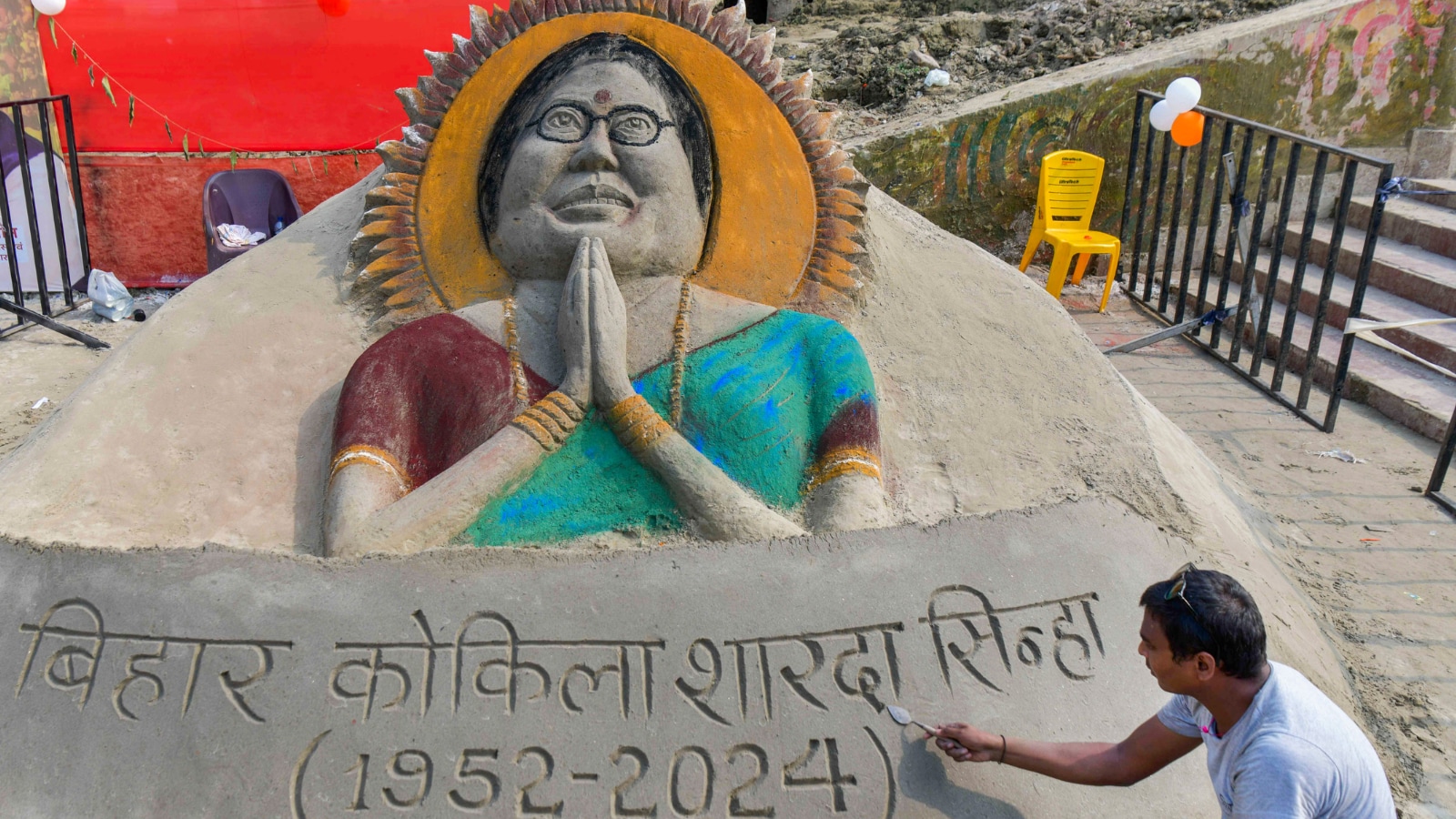Copyright news18

Prime Minister Narendra Modi on Wednesday paid tributes to late Sharda Sinha on her death anniversary. “On the first death anniversary of Bihar Kokila Sharda Sinha ji, heartfelt tribute to her. She gave a new identity to Bihar’s art and culture through folk songs, for which she will always be remembered,” PM Modi posted on X. “Her melodious songs associated with the great festival Chhath will forever remain etched in the hearts of the people,” he added. बिहार कोकिला शारदा सिन्हा जी की पहली पुण्यतिथि पर उन्हें भावभीनी श्रद्धांजलि। उन्होंने बिहार की कला-संस्कृति को लोकगीतों के माध्यम से एक नई पहचान दी, जिसके लिए उन्हें सदैव याद किया जाएगा। महापर्व छठ से जुड़े उनके सुमधुर गीत हमेशा जनमानस में रचे-बसे रहेंगे। — Narendra Modi (@narendramodi) November 5, 2025 Who Is Sharda Sinha? Sharda Sinha was one of India’s most celebrated folk singers and an enduring cultural icon of Bihar. Born in 1952 in Supaul district, she devoted her life to preserving and popularising the rich folk traditions of the region. Singing primarily in Maithili, Bhojpuri, and Magahi, she became known as the “Kokila of Bihar” — a voice that carried the essence of rural life, devotion, and celebration. Her songs reflected the emotions, rituals, and rhythms of Bihar’s heartland, earning her love across generations. Her contribution went far beyond music; she became the voice of Bihar’s festivals. Sharda Sinha’s songs for Chhath Puja, such as “Uga Ho Suruj Dev” and “Pahile Pahile Pooja Karu Ae Suruj Dev”, turned into timeless hymns of devotion. For millions of Biharis, both in India and abroad, her music defined the sound of home during festive seasons. She also brought traditional wedding songs and regional melodies into mainstream Indian music, lending her voice to popular Hindi films like Maine Pyar Kiya and Hum Aapke Hain Koun, where her folk touch added authenticity and warmth. Sharda Sinha’s work was pivotal in giving dignity and recognition to Bihar’s folk culture at a national level. At a time when classical and Bollywood music dominated, she stood firm in her commitment to folk traditions, proving that simplicity and cultural depth could move hearts across linguistic boundaries. Her awards — the Padma Shri, Padma Bhushan, and posthumous Padma Vibhushan — reflect not just artistic excellence but her role as a custodian of Bihar’s intangible heritage. To Bihar, Sharda Sinha was more than a singer — she was a symbol of pride and identity. Through her voice, she bridged the rural and urban, the traditional and modern. Every Chhath morning that echoes with her songs is a reminder of her legacy: that the culture of Bihar, rooted in faith and emotion, continues to thrive through the melodies she gifted to the world.



